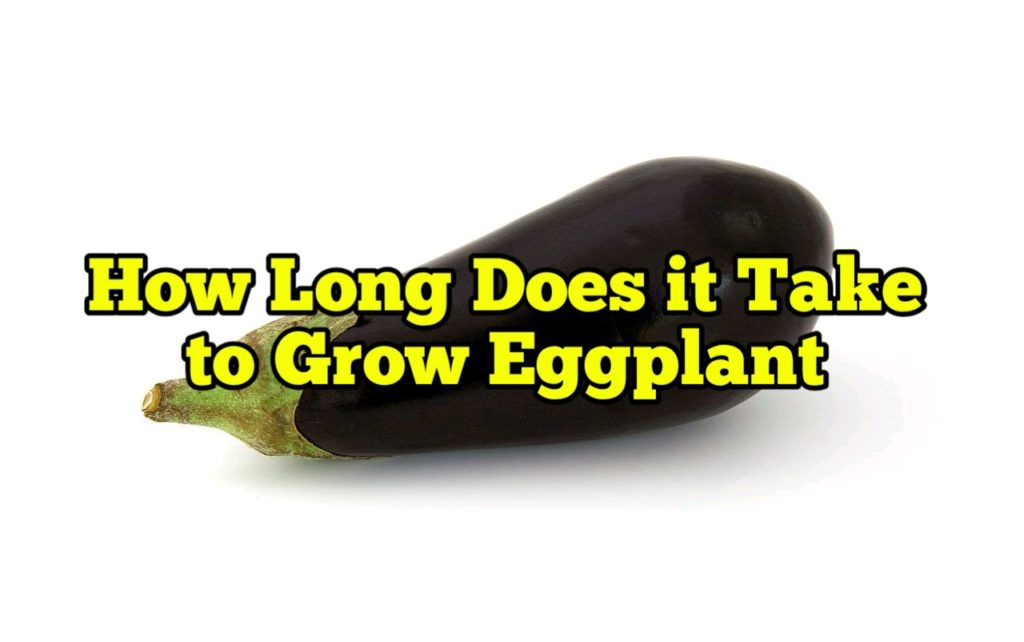
Eggplant is one of the most popular vegetables in the world. It’s easy to grow, and it’s delicious. You can use eggplant in any number of recipes from stir-fries to casseroles. If you’re interested in growing your own eggplant, it’s good to know how long it takes for eggplants to mature and bear fruit.
What Is the Ideal Growing Season for Eggplant?
Eggplants are tropical plants, so they do best in warm weather. The ideal temperature range for eggplant is between 70 and 80 degrees Fahrenheit (21 to 26 Celsius).
If you live in a temperate climate, you’ll want to start your eggplant seeds indoors under lights or in a greenhouse about 4-6 weeks before the last frost date for your area. Eggplant needs at least 6 hours of sunlight each day to thrive.
When the seedlings are a few inches tall and have their first true leaves, transplant them into individual pots or peat blocks that will be easy to move when transplanting time comes around. Onions make good containers because they need lots of sun and drain well; just be sure not to let them dry out completely after watering.
How Long Does It Take for Eggplant Seeds to Germinate?
Eggplant seeds are easy to germinate, but it’s important to keep them warm and moist. The seeds will germinate in about 5-10 days in the soil.
After the seeds have been germinated they will turn into seedlings. The seedlings should be kept at a temperature between 70-80 degrees Fahrenheit, with light that is indirect or filtered.
A well-drained soil will ensure the roots of your eggplants remain healthy. It is important to keep your eggplant watered regularly, but not too wet.
How Long Does It Take for Eggplant Seedlings to Mature?
Eager to get your eggplant started? The good news is that eggplant seedlings take only about two months to mature.
So if you’re planning to grow enough of these plants for a large-scale harvest, it won’t take long before you can start enjoying them.
If you want your seeds to germinate quickly, soak them in water overnight and plant them immediately after they’re ready.
You can also try soaking the seeds overnight in warm water if they need more time than that—many people say this helps speed up the process.
But be careful not to overwater the soil once transplanting time comes; too much moisture can cause root rot and kill off young sprouts before they even have a chance at success.
Once your seeds have been planted, keep track of how tall each one grows each day by measuring its height with a ruler or yardstick and marking it down on paper or in an app like Evernote (which syncs across all devices).
Once you see two true leaves emerge from each little sproutling—and as long as everything looks healthy on both sides of their stems—it’s time for transplanting.
How Long Does It Take for Eggplant to Bear Fruit?
Eggplant is a perennial plant that can be grown as an annual. Eggplant plants grow best in warm weather, so they’re sensitive to frost and drought. They do best in full sun, but will tolerate partial shade.
The time it takes for eggplants to bear fruit varies depending on the variety of eggplant you choose and your growing conditions. It will take about 100 to 120 days to grow eggplant from seed.
Some varieties have been bred for their ability to produce early fruits; others have been developed for their late harvest date or disease resistance.
Eggplants are a warm-weather crop and can be grown outdoors in areas with temperatures above 70 degrees Fahrenheit. They do not tolerate frost, so you should wait until all danger of frost has passed before planting your seedlings.
Eggplant seeds need light to germinate; sow them into the soil 1/4 inch deep and keep the soil moist until they sprout.
Conclusion
A lot can be said about eggplant, but the bottom line is that it’s a very rewarding plant to grow. The eggplant is one of the most versatile vegetables out there, with many different uses and varieties available for your garden.
It takes several months for the seedlings to mature into strong plants producing fruit. However, once they do reach maturity, it won’t take long before you start seeing delicious purple globes hanging from their branches.
